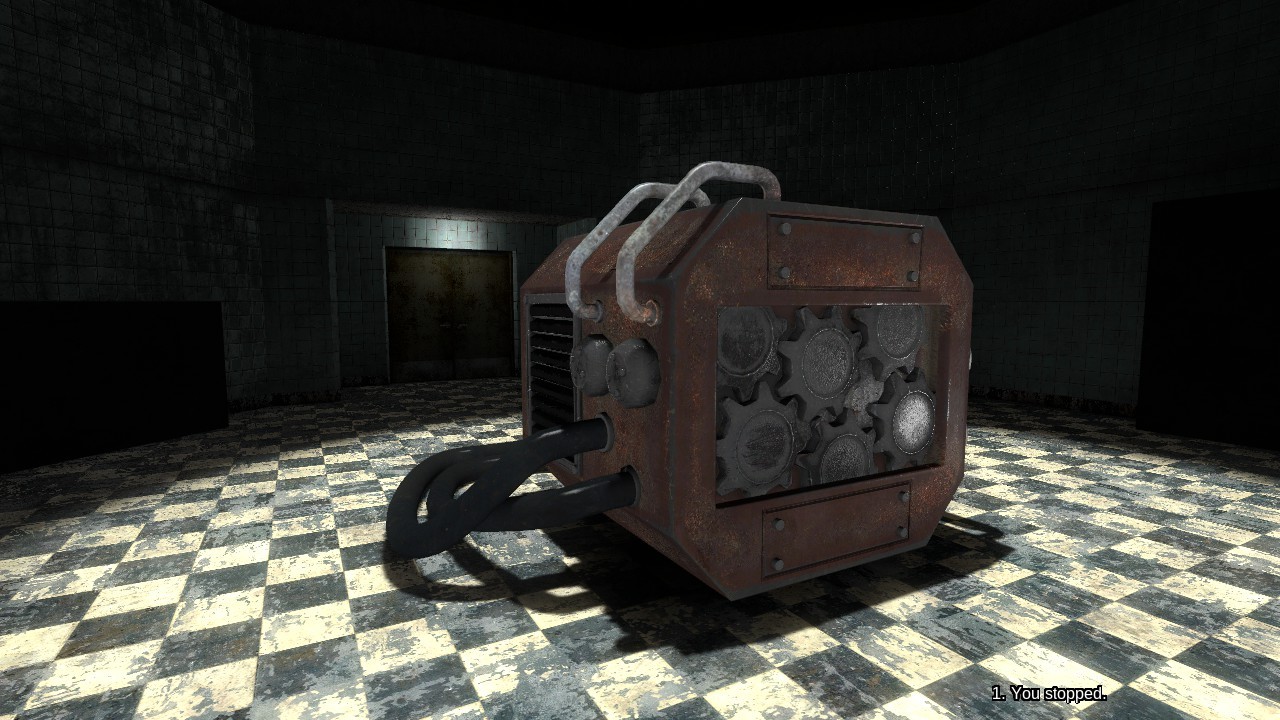A Guide To Disappointment
Making a good game is never easy. But you know what’s even harder? Making a second good game, after a successful first one. And this has nothing to do with games, actually. It’s true for about everything remotely artistic or creative. Anything great sets expectation for what is yet to come, and everything will be measured against it. And there is nothing wrong with that. For the artist’s fans, it generates anticipation and publicity. The creator(s), however, may feel under pressure to deliver something just as good, just as innovative as the first thing that was widely acclaimed.
Why am I even talking about that? The creator(s) of The Beginner’s Guide were also behind The Stanley Parable. The Stanley Parable did not feel like a real game, but it was certainly a very interesting experiment in narration and user interaction. While there was no specific end and goal to it, it felt very satisfying and fulfilling. It was fresh, new and in some way a provocative take on what you expect from anything interactive. I personally did enjoy it a lot, even if it was short. It did pike my curiosity and made me reflect on it.

So, it was clear to me that I should watch carefully what these folks would do next. And voila, there you have the Beginner’s guide. The trailer was intriguing. You would be following a person who’s been programming small games and try to understand their way of thinking, bit by bit. While I did not really see the point at that stage, I did not really reject the idea either and I was certainly interested to give it a go at some point.
The problem starts with the trailer. It gives you a sense that it’s interactive, and that you can jump from one mini-creation to the next at your wish. Kind of just like the Stanley Parable where you can choose your own path at any given time.
This is the first part where The Beginner’s Guide starts to deceive. Small detail but there’s one scene in the trailer that’s not even in the actual game, but that does not really matter. The main problem is that the actual game is very, very linear, and does not leave you much choice. That is a major disappointment. You have to do what you are being told, and there’s not much else you can do anyway. There is virtually no freedom, and no chance for experimentation. Coming from The Stanley Parable, the least I can say is that it feels like the exact opposite, like being on rails from beginning to end.

You are led by a narrator, “Davey” (the main developer of the game), who supposedly has been in touch for many years with a fellow game-maker, “Coda”, who started creating mini-games/experiments using the Source Engine. Davey takes you from the first creations of Coda to the next, one by one, in a chronological order. He wants you to see the evolution of Coda’s thinking over time - and this happens with Davey’s voice over the gameplay, guiding you and explaining you stuff.
I have to admit it kind of worked in the beginning. You know TV series like LOST right ? They give you some kind of mystery to think about, and they tell you that later on, you’ll understand everything at some point. It kind of felt the same way here. It made you hungry for more, but falls flat when it comes to delivering any kind of satisfying explanation or rewarding conclusion. I hated LOST when it finished, because nothing was explained (numerous questions were triggered in every season and only a small minority were resolved) and it looked like “whatever, nothing makes sense, but we are going to end it anyway!”. Fuck that. You wasted my time!

Same thing here. I don’t want to call it a spoiler, but there’s no big explanation to anything here. Whatever Davey tells you about Coda or about himself is extremely shallow. Oh like… Coda does something like what a depressive person would do, so maybe… he is depressed? Wow. Thanks Captain Obvious for the audio commentary, that was really useful. I could not have deduced that from someone who keeps creating prisons.
And while at the start of the game, this could have felt like a true story (it was certainly plausible up to a certain point), it clearly becomes more and more artificial as you continue. It takes you through a number of stories about Davey interacting with Coda, but it never really feels authentic. Like the fake laugh someone does just because they did not hear what you were saying.
So yep, Davey is clearly playing a role, and he’s not even good at that - it feels forced very, very quickly. The suspension of disbelief falls apart completely after about 30 mins through the game, where you then know for sure that everything is just a complete fiction in the first place, including that Coda character.

But wait, is the fact that it’s a fiction a problem ? Not really per se. After all, many folks love fiction even though they know blantantly it’s fiction while reading or watching it. X-Files was very clearly mostly fiction, but it had something that it did right in some of its episodes: it mixed enough elements of “truth” and reality with fictitious ones, that sometimes it was kind of hard to see exactly where the line was. It made it believable to some level, in its own world.
The Beginner’s Guide loses all believability pretty quickly, and there’s nothing that redeems it. I was kind of expecting that, by the time we move on to new levels, something extraordinary would happen. You know, suddenly Coda stepping him in the commentary, catching your unaware or stuff like that, to give you their vision of their levels. That would have been cool and kind of unexpected, and maybe that would have made me wonder if that Coda person was actually just an actor or someone real.
But hey, nothing like that. No surprise, no tension, nothing bringing back the interest up. So, it felt like a major let down in the end.
Was it all for nought ? Not completely. Some of the mini-levels had interesting ideas - visually pleasing ones. I really liked the school auditorium for one, with the ongoing changing perspective - that was very cool and caught you off guard. However, many levels are utterly “meh” and just boring. The idea was that Coda is supposedly an amateur at making these small levels, and therefore they should not feel like anything complete and all. OK, I get it, but it does not mean they have to be so, so boring.

I hear some people describe this game as a walking simulator. I think this is a fitting expression… up to a point. When I walk somewhere, it has some purpose and there is some place I need to go to. Here, it felt pointless, useless, unnecessary, forced. It’s more like a wandering simulator than anything else. It’s pretentious, too, because it tells you there’s some bigger picture to it while there’s clearly nothing worth bragging about, and it ends up in the worst way possible, unfinished, uncomplete. Unresolved. If you see a “Philosophical Message(TM)” anywhere, well it’s pretty thin and could have been summarized in like 2 lines. No material to challenge Kant or Rousseau here, that’s for sure.
So, Wow.
Stanley Parable had set the expectations high for this one, but even on its own there’s nothing remotely fascinating about it. I would not recommend anyone to play this (unless, you know, I don’t like you). Even if you have time to kill. But if you REALLY want to consciously inflict yourself pain, at least there’s one good thing I can say about it: it’s short enough, so you won’t have to suffer too long.
[ Note: All screenshots are from gameplay session on Linux, and to note, the game worked perfectly and did not crash even once. ]
